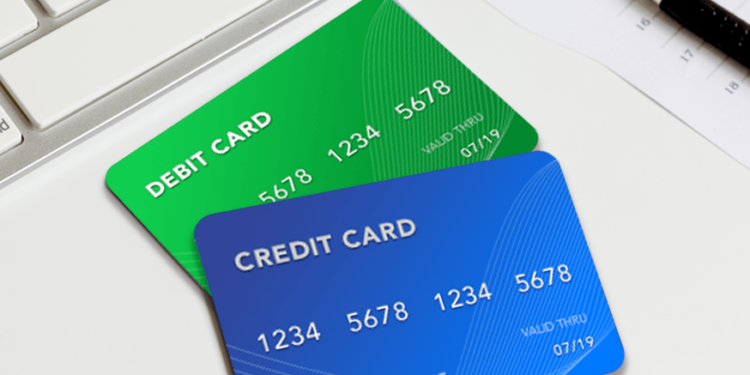It’s common to get confused if you need to learn the difference between credit card and debit card. Both feature 16-digit numbers, expiry dates, magnetic stripes, and EMV chips. While both cards provide ease and convenience when shopping in-store or online, there is a critical difference between them.
A debit card allows you to access funds deposited in your bank account, while a credit card permits you to borrow money from the card issuer up to a specific limit to make purchases or obtain cash.
Most individuals carry both a credit and a debit card for the benefits they offer. Still, it’s essential to understand their significant differences, which can impact your finances. Choosing which card type to use depends on your spending requirements, and this guide will help you make an informed decision.
What is the difference between the two?
Credit Card – A Credit Card is a financial instrument that permits you to borrow money from your credit card issuer and make necessary purchases. You usually have around 45 days to repay the borrowed amount without incurring any interest charges on the billed amount. When you apply for a Credit Card, you are assigned a personalized credit card limit, representing the maximum amount you can spend using your credit card.
Debit card – A Debit Card is a payment card issued by a bank linked to your current or savings account. The key difference between credit card and debit card is that a Debit Card allows you to access only the amount of funds available in your account without incurring any additional charges. When you use your Debit Card to make a purchase, the amount will be immediately deducted from your account.
Using a Debit Card will result in immediate deductions from your account, while Credit Cards charge the amount to your credit line, giving you more time to pay. It is beneficial and fast if you need to learn how to send money from credit card to bank account.
A Debit Card is suitable for minor, routine purchases since you will instantly see the money leave your account. However, for more significant expenses like renting a car or booking a hotel room, using a Credit Card can save money before the payment due date.
Advantages of a Credit Card
A Credit Card can provide numerous benefits, including:
- At the end of each monthly cycle, a bill will be issued stating the total amount owed for purchases made in the last 30 days, and you typically have a few weeks to make the payment. While the minimum charge is mandatory, you can repay the amount without additional charges if you pay under 45 days.
- A Credit Card also helps build your credit history, as paying your bills on time demonstrates your ability to manage debt. It is crucial when applying for loans or purchasing assets like cars and homes, as lenders often review your credit score. Consistently paying off your monthly credit card bill can help increase your credit score and improve your chances of securing a loan.
- Credit Cards are helpful in emergencies, as they provide a convenient means of accessing credit when unexpected expenses arise. For instance, when an unexpected home repair bill appears, using a Credit Card to pay for the cost can provide a temporary solution until you can pay off the balance.
Advantages of a Debit Card
Aside from their convenience when cash is unavailable, Debit Cards offer users several advantages.
- Using a Debit Card rather than a Credit Card can help prevent debt accumulation. It is an excellent tool to stick to a budget and avoid overspending on your account. If you spend more than the balance in your account, some banks may charge overdraft or return fees.
- Debit Cards offer easy access to your funds. You can withdraw cash from ATMs using the card.
Also Read: Types of Credit Card Charges
Conclusion
Credit and Debit Cards may look similar, but they have distinct features that set them apart. While Credit Cards charge interest on borrowed money, Debit Cards draw on funds directly from the user’s account. Keeping both types of cards handy for emergency expenses and financial management is recommended.




























